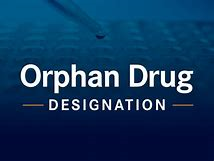americanpharmaceuticalreviewApril 17, 2019
Viracta Therapeutics announced the U.S. Food & Drug Administration (FDA) has granted Orphan Drug Designations (ODD) to their Phase 2 drug candidate, nanatinostat, in combination with the antiviral valganciclovir, for the treatment of post-transplant lymphoproliferative disorder (PTLD), plasmablastic lymphoma, and angioimmunoblastic T cell lymphoma. The therapeutic approach is being investigated in a Phase 1b/2 clinical trial of Epstein Barr Virus (EBV)-associated lymphomas, including the ODD granted subtypes.

"We are pleased that the FDA has granted Orphan Drug status to nanatinostat, further validating our therapeutic approach and expediting the development of novel treatments for virally-driven cancers. Importantly, the Orphan Drug designation includes both T cell and B cell lymphomas, which highlights our ability to target cancer cells that contain the EBV genome regardless of tumor type," said Ivor Royston, MD, Viracta's CEO. "We look forward to advancing nanatinostat towards registration trials in the U.S. and additional geographies and exploring the potential to treat additional EBV-associated indications."
The nanatinostat plus valganciclovir combination therapy follows Viracta's proprietary Kick & Kill therapeutic approach, which is being investigated in an ongoing Phase 1b/2 clinical study at clinical sites in the U.S. and Brazil. Nanatinostat (the Kick) is designed to activate EBV genes that have been epigenetically suppressed. In combination with valganciclovir (the Kill), cancer cells that harbor the virus will be selectively killed. Viracta's unique treatment approach holds potential to become the first targeted, orally administered epigenetic therapy for EBV-associated cancers.
Drugs that receive ODD by the FDA, such as nanatinostat, obtain seven years of marketing exclusivity, tax credits for clinical trial costs, marketing application filing fee waivers and assistance from the FDA in the drug development process.
Nanatinostat (VRx-3996) is an oral histone deacetylase (HDAC) inhibitor that is being investigated in a range of clinical indications. Nanatinostat is selective for Class 1 HDACs, including isoforms targeted in Viracta's Kick & Kill therapeutic approach. Viracta is investigating nanatinostat in a Phase 1b/2 clinical study in combination with an antiviral valganciclovir for the treatment of EBV-associated cancers.
Approximately 95% of the world's adult population is infected with Epstein-Barr Virus (EBV). Infections are commonly asymptomatic or associated with mononucleosis. Following infection, the virus remains latent in a small subset of lymphatic cells for the duration of the patients' life. Cells containing latent virus are increasingly susceptible to malignant transformation. Patients who are immunocompromised are at an increased risk of developing EBV lymphomas. In addition, EBV is also associated with a variety of solid tumors, including nasopharyngeal carcinoma and gastric cancer.
Register as Visitor to CPhI China 2019!

-----------------------------------------------------------------------
Editor's Note:
To apply for becoming a contributor of En-CPhI.cn,
welcome to send your CV and sample works to us,
Email: Julia.Zhang@ubmsinoexpo.com.


Contact Us
Tel: (+86) 400 610 1188
WhatsApp/Telegram/Wechat: +86 13621645194
Follow Us:




 Pharma Sources Insight January 2025
Pharma Sources Insight January 2025


